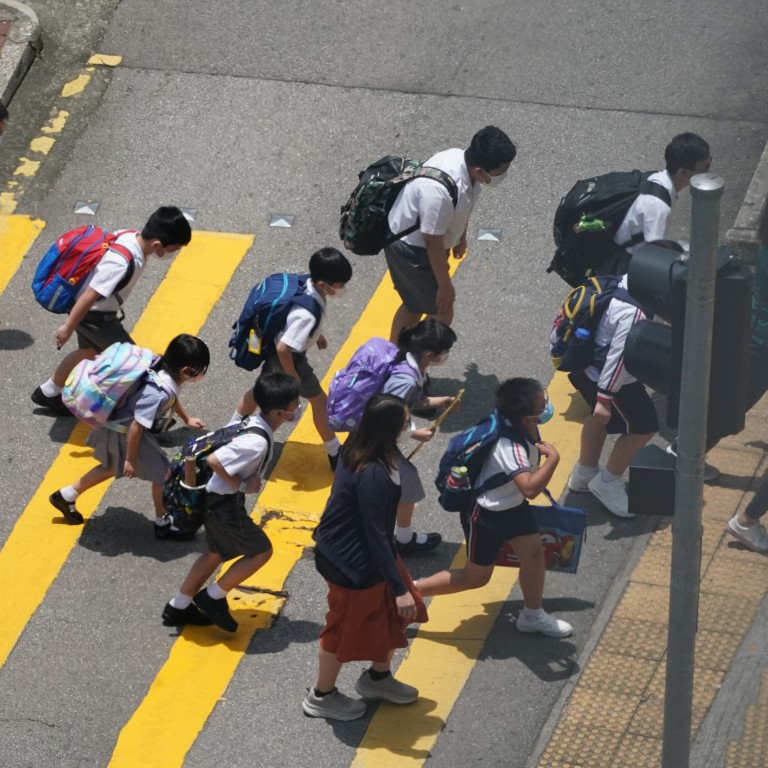
Coronavirus: Hong Kong children experienced increased hyperactivity, diminished social functioning as a result of school closures, survey finds
- University of Hong Kong finds children’s hyperactivity levels rose by 7.5 per cent during the school closures, while parental stress went up 5.6 per cent
- Researchers say a separate study of young people who contracted Covid-19 last year suggests the risk of infection at school may be comparatively low
The University of Hong Kong (HKU) poll of 29,202 families with children aged between two and 12 showed that children experienced elevated hyperactivity during the suspension of face-to-face classes, with symptom scores 7.5 per cent higher than they were before the pandemic.
It also found that children experienced diminished emotional and social functioning, and lower levels of physical activity during the school closures.
“It is evident that children’s psychosocial well-being has been adversely affected by extended school closures during the pandemic,” said Dr Mike Kwan Yat-wah, an honorary clinical associate professor of paediatrics and adolescent medicine at HKU.

The online survey, conducted during the first and second waves of coronavirus infections last year, also found that parents’ stress levels increased by 5.6 per cent compared with their pre-pandemic scores.
Meanwhile, children with special educational needs, acute or chronic diseases, and mothers with mental illness – as well as those from single-parent or low-income families – were more likely to develop psychosocial problems, according to the study.
Dr Patrick Ip Pak-keung, a clinical associate professor in the same department at HKU, said adequate sleep and exercise, more parent-child interactions and the responsible use of electronic devices were essential to promoting family well-being during the pandemic.
Parents relieved as Hong Kong schools return to full capacity
Ip noted that elevated parental stress was a risk factor for child abuse and domestic violence, and stressed the importance of promoting psychosocial well-being among children to improve their caretakers’ mental health in turn. He also urged authorities to provide additional support to children in vulnerable groups.
In another study, HKU researchers looked at 397 people aged 18 or below who contracted Covid-19 between January 23 and December 2 of last year, and found that household transmission was the main source of such infections.
Nearly all of the 186 local, traceable cases included in the study had family members in the same household who also contracted Covid-19. Only three of the cases were schoolmates who reportedly had close contact with each other.
Covid-19 rules for Hong Kong schools ‘should be tied to pupil vaccination rates’
Kwan said the findings showed the risks of being infected at school were low, and urged authorities to take that into account – along with the impact of the closures on children’s well-being – when considering any future class suspensions.
“Looking forward, the government can adopt a more precise approach, such as shortening the duration of school closures if possible and considering whether all students need to be covered under the measures,” he said.
Both Kwan and Ip urged those who were eligible for the city’s vaccination drive to get inoculated as soon as possible to build up herd immunity and avoid any further disruptions to in-person learning.

